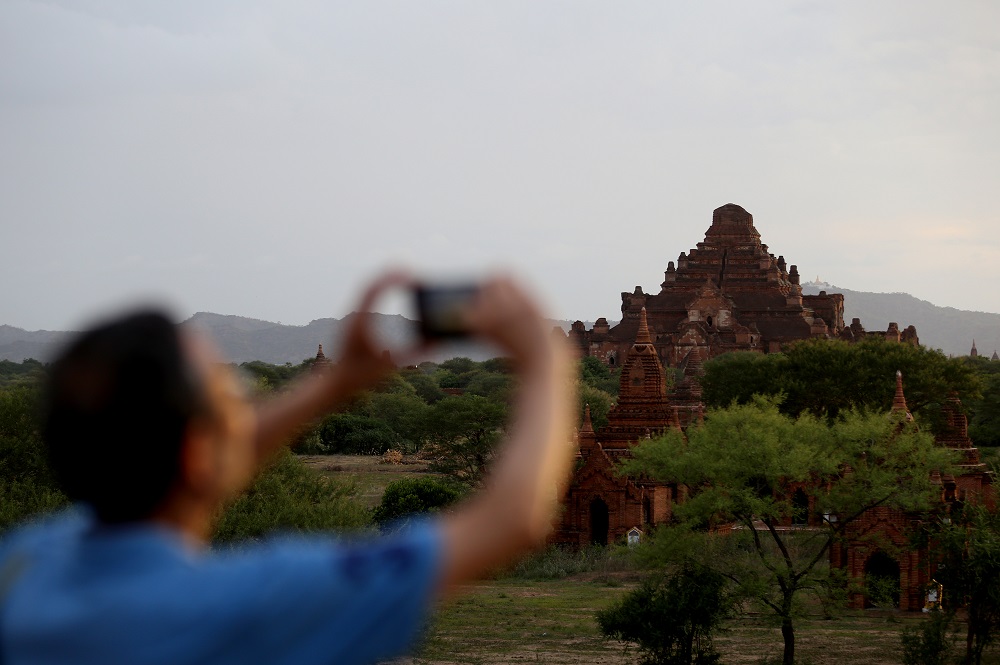China Daily 2024-12-04 15:02:03

YANGON — In downtown Yangon, China-funded training programs are providing professionals with updated skills and knowledge to help revive Myanmar's tourism sector after the pandemic.
Lin Latt Phyo, a final-year tourism student at the National Management Degree College, was one of those who participated in the tour operator and travel operation training sessions.
"I joined this course to expand my knowledge of tourism. Here, I've learned about marketing strategies, destination management, and travel itinerary planning," she says.
She is working on her final-year research paper. "The knowledge gained from this course will enhance my writing," she adds.
The course, which concluded recently, emphasized preservation of Myanmar's tourism destinations to attract more international visitors. "The training covered both theoretical and practical aspects," she says.
It included seven courses, covering digital skills, training for tour operators and guides, and hospitality-related skills. The program was funded by the China Foundation for Rural Development, and organized by the Myanmar Tourism Federation and other organizations.
Min Soe Thura, an experienced tour guide fluent in English, also attended. "The training helped me update my knowledge. We even went on a day trip to Yangon Heritage Trust sites," he says.
"The tourism industry is struggling to recover in the post-pandemic period, and this training gave us ideas about how to boost it," he continues, acknowledging current challenges.
The 10-day course was attended by around 50 trainees, including students, tour guides and tour operators.
"The purpose was to refresh the skills of individuals in the tourism industry," says Naing Htoo Aung, one of the course's teachers and a tour guide.
"I teach responsible practices to ensure safety and reduce environmental impact for sustainable tourism. Our curriculum was made in line with ASEAN (the Association of Southeast Asian Nations) competency standards."
The course was also designed to help address gaps in the workforce following the pandemic, which caused many tourism professionals to switch careers.
"Thanks to the China Foundation for Rural Development's financial support, we were able to offer the courses free of charge," he says. "This was extremely beneficial for the trainees."
Trainees also learned about Chinese culture to be better able to communicate with Chinese tourists, he says.
Tourism is not solely about economic benefits, it also fosters meaningful cultural exchange, he adds.
责编:田梦瑶
一审:田梦瑶
二审:唐煜斯
三审:秦慧英
来源:China Daily
我要问



 下载APP
下载APP 报料
报料 关于
关于
 湘公网安备 43010502000374号
湘公网安备 43010502000374号